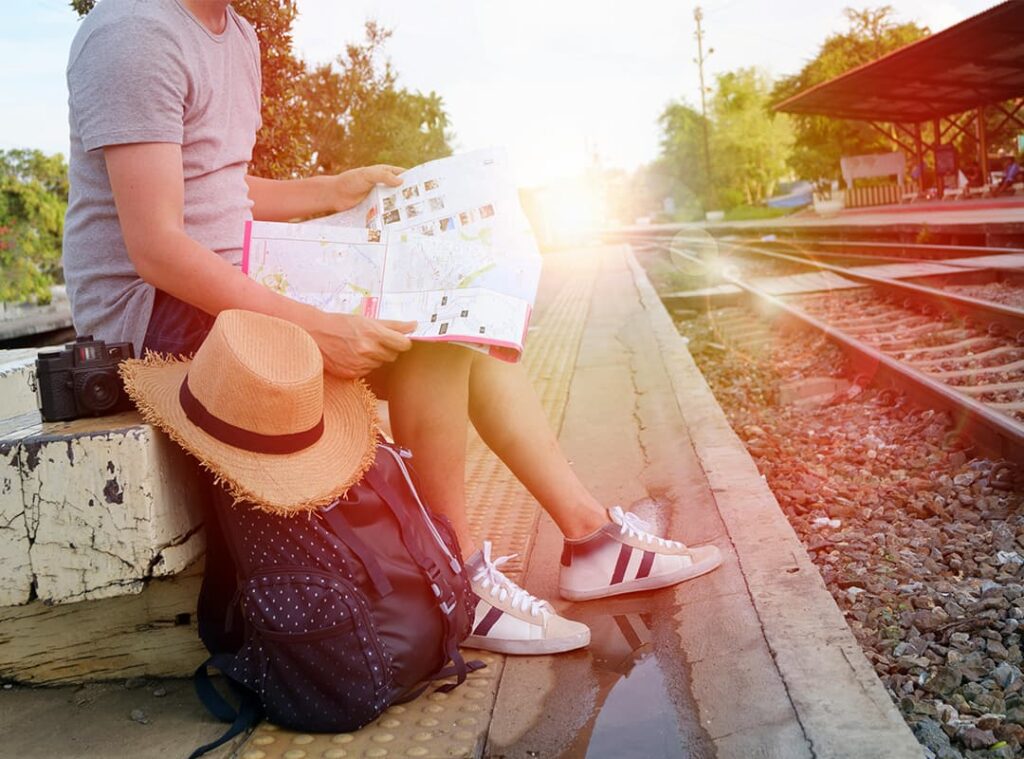Don’t underestimate the banana bag. Yes, they may look strange and a little old-fashioned, but believe me, every time you travel, even without leaving the country, you will be sure that all your valuables are safe. And such a bag will speed up the passage of control and all checks.
If possible, make sure you have Internet access or other ways to keep yourself busy if your flight takes more than six and a half hours. You will be grateful when you find that talking to a random neighbor is harder than going to the dentist. Also, if the airline allows Internet use, you can finish your work before you land.
Make sure you take a pen to fill out customs and other forms before you leave. Fill out the forms as soon as you receive them, and make sure your family members do as well. Be prepared for other travelers to ask to use your pen as well; it can be hard to find at times like this.
Visit the restroom 20 minutes before landing. Usually, when the seatbelt warning goes off, you still have 15 minutes of leeway before you are actually required to stay in your seat with your seatbelt fastened. Take advantage of this opportunity so that you don’t have to fight for the restroom when you land.
Tips upon arrival
Go straight to the baggage claim area. It’s amazing how many people hang around after boarding. Leave that for another place to save time.
Use ATMs to get local currency. Currency exchangers at airports usually add their own fees, and the exchange rate is very unfavorable for you. ATMs always dispense local currency, so use your bank card to withdraw money.
For traveling in the US and Europe, I advise you to download Yelp or Foursquare. These are great guides for tourists and locals alike, and the best way to find the most amazing places to eat and see.
When you arrive, go to the grocery store. You don’t have to buy a bunch of stuff, but basic items like water and some snacks bought at a local store instead of your hotel can save you money.
When you settle into your room, take only the essentials out of your luggage. Trying to make yourself at home by laying out every pair of shoes and all the toiletries will not only make packing before you leave hell, but also increase the chances that you will forget something
Research the new area
Use guidebooks wisely. I’ve already recommended Yelp and Foursquare because they allow you to discover some lesser-known places. Conventional guidebooks only provide insight into the standard tourist attractions, even if they call themselves “lesser-known”. Applications such as Google Maps, TripAdvisor, Redigo, and AroundMe will also be useful.
Communicate in the local language as much as possible. This will not only show a good side of you personally, but also of your country and people.
Prepare a list of souvenirs to buy in advance and stick to it. This will allow you not to spend extra money and will keep you from buying something that you will “give to someone later”.
Eat only local food. Leave McDonalds, if you need it, for the period when you are at home. Eating local cuisine will save you money and allow you to try new and delicious dishes.
“You don’t go to someone else’s monastery with your own charter” is a saying that I want to paraphrase as follows: “Don’t be a stubborn traveler and get out of your comfort zone.” If, for example, it is customary to wear modest clothes in a country, then follow this rule as well. In addition, wearing such clothes you will definitely be confident in your safety in an unfamiliar country.
